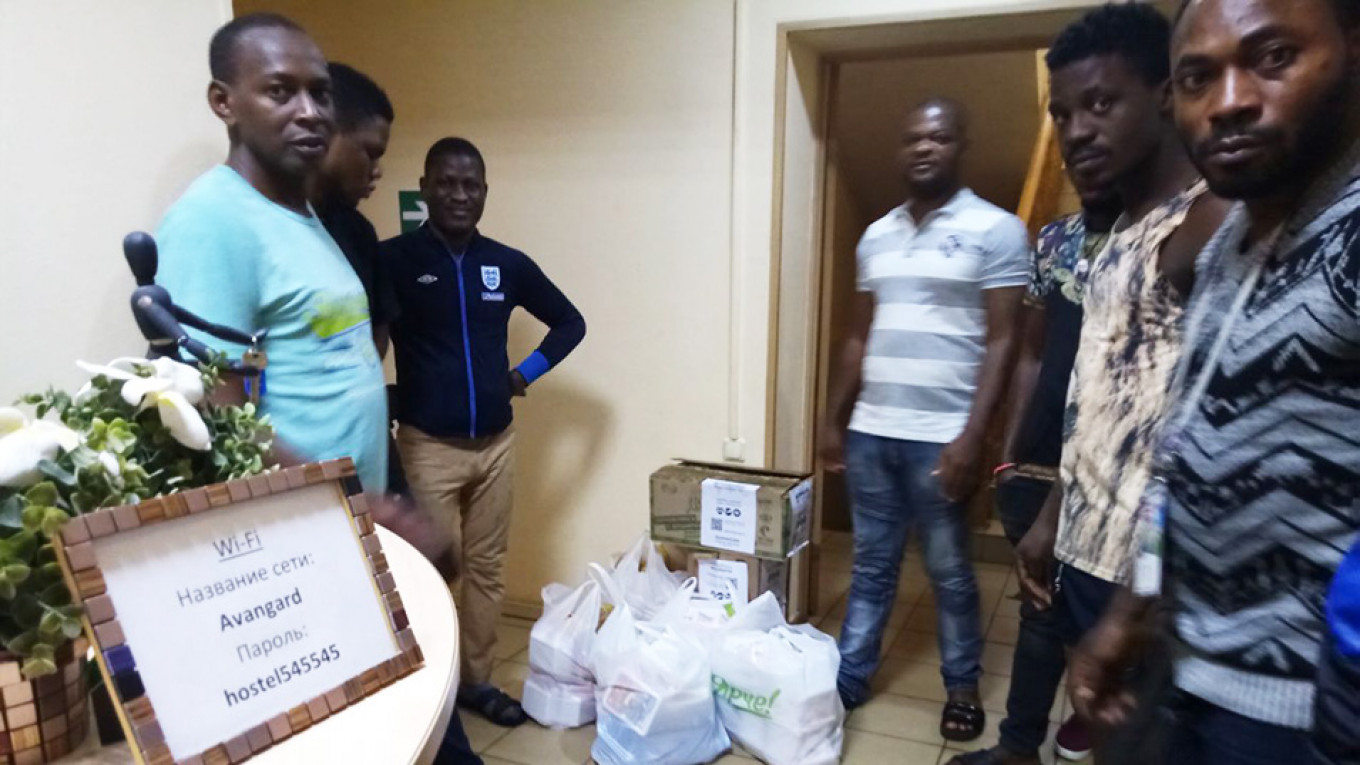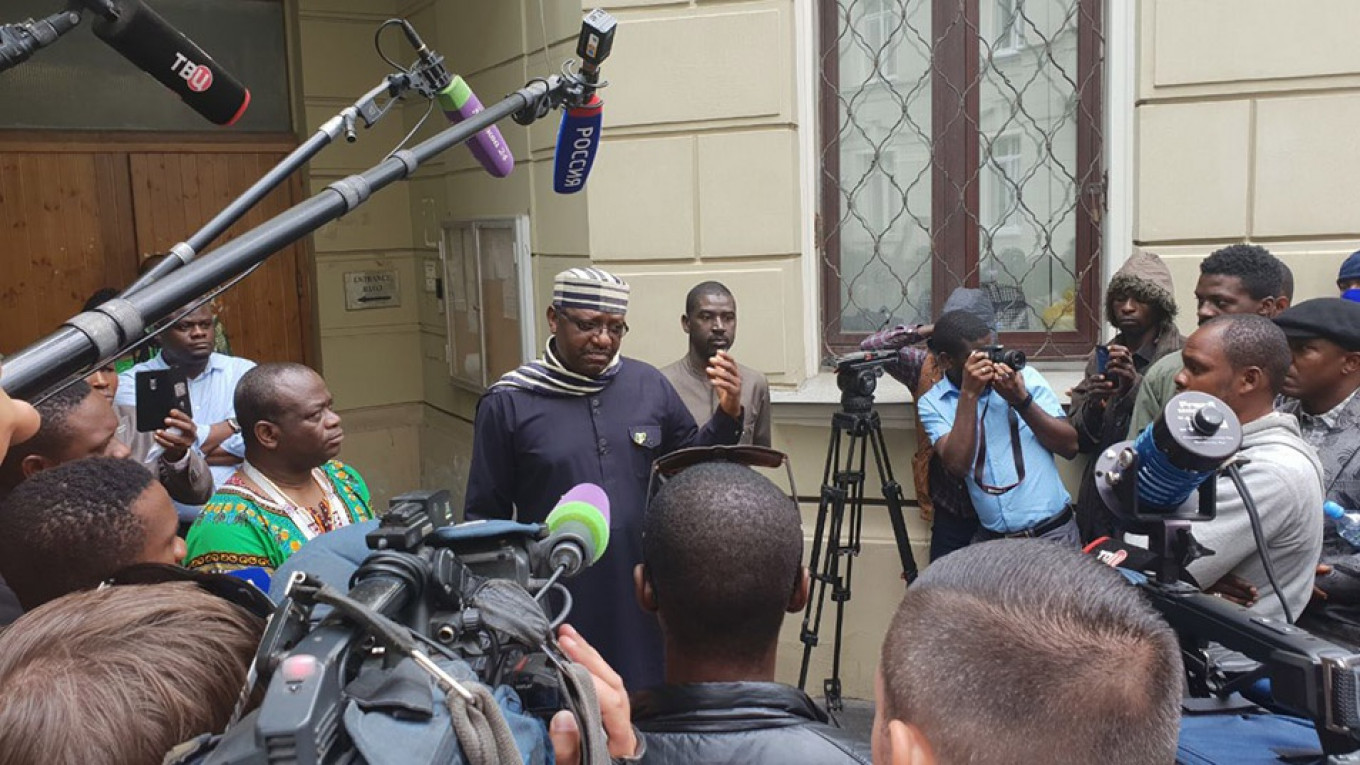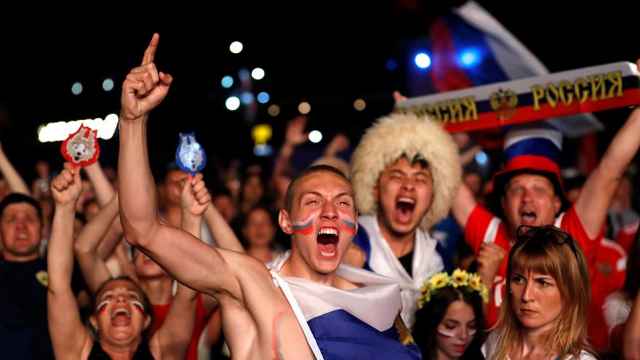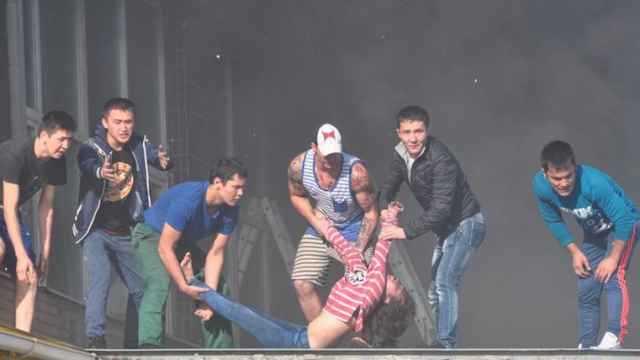As the World Cup in Russia drew to a close Sunday, foreign fans packed their bags and boarded flights home. But in Moscow, a group of more than 200 Nigerian nationals haven't been able to leave.
They are the victims of a scam that sold them round-trip tickets to Moscow using FIFA fan IDs and then canceled their return ticket, stranding them in Russia with no way home. Some came because they were promised jobs that never materialized. Others insist they are misled football fans.
Peter Oladeji is one of them. “I came to Russia because of football. I like Ronaldo, I like Messi,” the 37-year-old told The Moscow Times. “But somebody like me, as a family man, I can’t be staying in Russia.”
Activists say the Nigerians are victims of traffickers who took advantage of Russia’s relaxed visa requirements introduced to encourage foreign fans to attend the World Cup. The Alternativa anti-slavery group in Moscow, which estimates that thousands of Nigerians are illegally trafficked to Russia every year, said they predicted problems ahead of the football tournament.
“We knew this would happen and that it would happen easily,” said Yulia Siluyanova, a senior Alternativa staff member.
Indeed, on June 12, two days before the World Cup kicked off, anti-trafficking authorities in Nigeria said they had thwarted attempts to bring 10 children to Russia illegally.
While trafficking is primarily labor or sex trafficking, Siluyanova said the case of the stranded Nigerians is still the movement of people for money. “And those people did not have a choice,” she said.
Professor Steve Davies Ugbah, the Nigerian ambassador to Russia, told journalists at a press conference this week that “the federal government of Nigeria is sending a plane very soon to evacuate these Nigerians back home.”
According to the Embassy, more than 200 people are waiting for officials to arrange flights to Lagos. Turkish Airlines and Royal Air Maroc, two of the airlines which many of the Nigerian fans had return tickets, did not respond to requests for comment.

As more and more Nigerians found their return tickets canceled, they began sleeping at the airport or parks in the city. After about 60 people spent one night in front of the Nigerian Embassy following a failed attempt to catch a new flight, the embassy arranged accommodations.
A hostel tucked away from the main street in a quiet neighborhood in northeast Moscow is the unexpected home of Oladeji and at least 24 other stranded Nigerians.
The Nigerian government is funding their stay at the hostel, while Alternativa has agreed to provide food and water for the stranded men.
Each day, says Oladeji, is much like the one before it. Sometimes the men take walks or play football, but mostly they wait.
“It is very difficult for me to stay [here],” said Oladeji, who described a language-barrier communicating with Russians.
The two-dozen men live in dorm-like accomodations with metal bunk beds reaching to the ceiling. In one room with 12 beds, clothing and bags hang off some of the bunks. A small card table in the center of the room holds several large bottles of water. Though the door is open and people mill in and out of the room, ventilation is minimal and the air is stagnant.
A July 15 announcement from President Vladimir Putin that anyone with a fan ID could enter Russia without a visa until the end of the year has not deterred Oladeji. “This is not our country,” he said. “When I go to my country, I will be very happy.”
Additional reporting by Evan Gershkovich
A Message from The Moscow Times:
Dear readers,
We are facing unprecedented challenges. Russia's Prosecutor General's Office has designated The Moscow Times as an "undesirable" organization, criminalizing our work and putting our staff at risk of prosecution. This follows our earlier unjust labeling as a "foreign agent."
These actions are direct attempts to silence independent journalism in Russia. The authorities claim our work "discredits the decisions of the Russian leadership." We see things differently: we strive to provide accurate, unbiased reporting on Russia.
We, the journalists of The Moscow Times, refuse to be silenced. But to continue our work, we need your help.
Your support, no matter how small, makes a world of difference. If you can, please support us monthly starting from just $2. It's quick to set up, and every contribution makes a significant impact.
By supporting The Moscow Times, you're defending open, independent journalism in the face of repression. Thank you for standing with us.
Remind me later.






